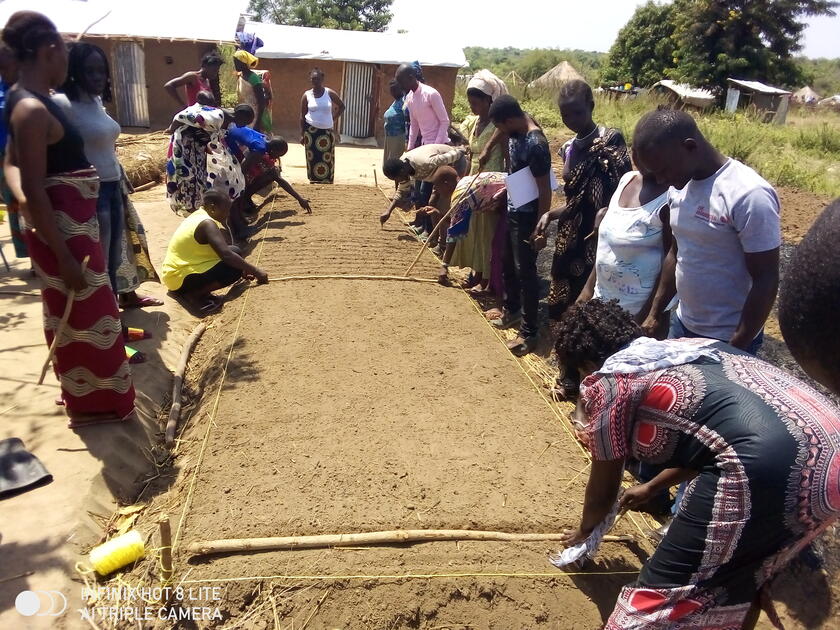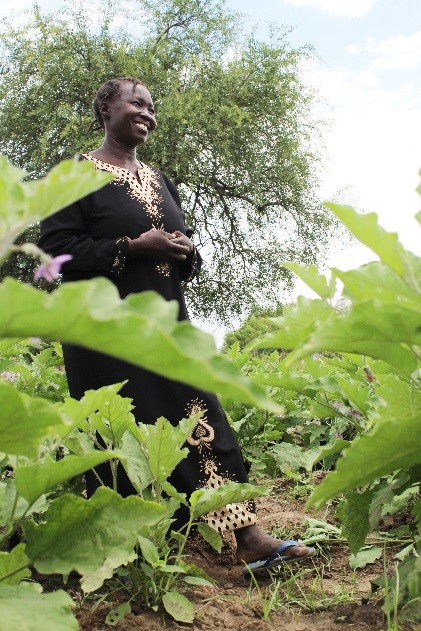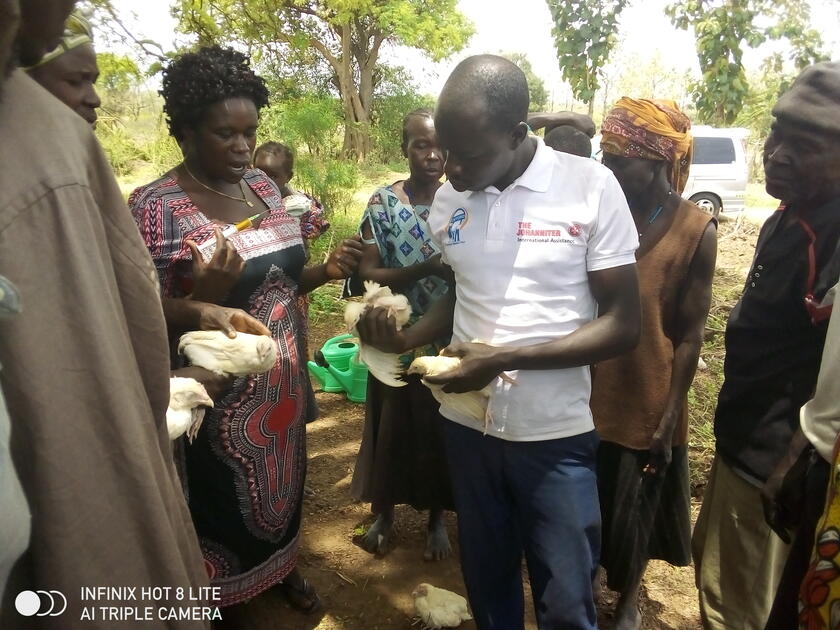Refugees in Uganda: Chance For a New Start
Berlin / Kampala, 29 September 2020
Uganda is home for displaced persons from 13 African countries. Most of them come from neighboring South Sudan or the Democratic Republic of Congo, where political crises, violence and armed conflict are forcing people to flee. In cooperation with the local partner Community Empowerment for Rural Development (CEFORD), Johanniter supported refugee families in a refugee settlement in northwestern Uganda in growing vegetables.
The Rhino Refugee Settlement is only one of many camps in western Uganda, which are home for up to 100,000 refugees. Despite economic instability as well as ethnic, cultural and religious tensions, they find the chance for a new beginning together with local residents in the region. This approach is supported by the state. "Uganda has taken in more than 1.4 million refugees since 2017 and continues to pursue an open refugee policy despite enormous challenges," says Gilbert Onwonga, Country Director of Johanniter in Uganda. On arrival, families are given a small piece of land, often no larger than 8x15 meters. A lifeline after all the losses, but still too little to provide a balanced diet with traditional knowledge.

Learning New Cultivation Methods in the Group Garden
This is why CEFORD is helping 60 selected families to improve their nutrition situation and even generating an income by managing their land well. This is done through the Farmer Field School (FFS) method. Participants as a group are given two fields to cultivate. One is cultivated with farming methods typical for the region, the other with alternative approaches. In this way, the participants learn new methods and possibilities that they can apply and compare in practice.

The 40-year-old participant Mariam had to flee South Sudan with her five children. Although she had never worked in agriculture before, she applied for the program and was accepted into the group. While working in the community garden, her interest in agriculture grew and she also began to cultivate her own piece of land. "I have transferred the knowledge from the group garden to my home, where I now have my own vegetable plot. Together with the products from the group garden, we eat a balanced diet. By selling vegetables, I was also able to purchase basic items such as sugar or soap," says Mariam.

Working Together as a Group and Supporting Each Other
In the medium term, the Group plans to continue as a community. The 24-year-old Vitali Mwenda fled the DR Congo and is now the spokeswoman for the participants. "We have mentally changed here. Previous attempts with other groups failed and we had no other expectation," Vitali Mwenda remembers. But CEFORD's close cooperation and support marked the difference and makes the participants believe that it will be successful. After two training sessions and the handover of equipment such as hoes, rakes and watering cans, everyone got down to work. "After our first sale on the market, we had around 15 euros left over, which we immediately invested in new seeds. That's when we realized how important it is to be organized as a farmers' group," says Vitali. The next purchase will be a tricycle to bring the products to the market. With small steps people like Vitali and Mariam work together to change their lives positively.
The project described here was financially supported by Aktion Deutschland Hilft and was successfully completed in the middle of the year. Our partner CEFORD has expanded the Rhino Settlement activities in the framework of a regional aid project. With the support of the German Federal Foreign Office, refugee families and locals get improved access to health services, preventive and curative nutritional measures, and drinking water, among other things, since August 2020.
What We Do Against Corona Worldwide
In Uganda and other project countries we are adapting our current project activities to respond to the worldwide corona pandemic.